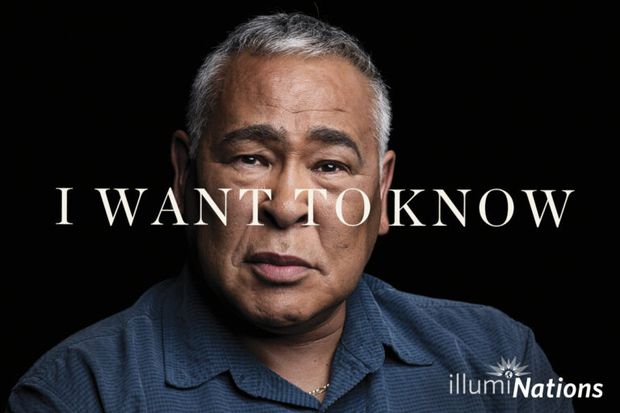Press Release from the Mainz city government, 30 MAR 2021
Courtesy Translation: Nadine Bower, Community Relations
Further restrictions on sports, commerce, culture and gathering of people – night curfew between 9 p.m. and 5 a.m. in Mainz.
Press release: Incidence levels in Mainz exceed limit value of 100 last Sunday – City of Mainz significantly tightens measures to protect the population against coronavirus infections
Yesterday, the administrative staff of the state capital Mainz met again under the leadership of Lord Mayor Michael Ebling and assessed the current developments in the spread of coronavirus infections. Since Sunday, the 7-day incidence - i.e. the number of new infections per 100,000 inhabitants per week - in the state capital Mainz is above the limit of 100 - at the same time the forecasts of the Robert Koch Institute (RKI) assumes further growing values nationwide.
The administrative staff has therefore decided, in accordance with the 18th Corona Control Ordinance of Rheinland-Pfalz (18th CoBeLVO), to take further measures to protect the population against coronavirus infections. These will be published tomorrow, Wednesday with a general decree and will apply starting Thursday, Apr. 1st, 2021, at midnight until at first and including Sunday, Apr. 11th, 2021:
Contacts
Staying in public spaces is only permitted alone or with the members of one’s own household and a person of one other household (children of both households up to and including six years old are not included in the determination of the number of persons).
Night curfew
Leaving one’s apartment or accommodation located in the area of the state capital Mainz and the stay outside one's own apartment or accommodation is generally prohibited daily between 9 p.m. until 5.00 a.m. of the following day.
During the period referred to in the first sentence, staying in the territory of the above-mentioned localities is in principle also prohibited for persons who are not residents there.
Exceptions to these restrictions apply only if there is a valid reason. The main reasons are:
(a) professional activities;
(b) actions necessary to avert an imminent danger to life, limb and property;
(c) the use of urgent necessary medical and veterinary care services;
(d) visiting spouses, partners within the meaning of the Civil Partnership Act, close relatives (within the meaning of Section 1589 paragraph 1 sentence 1 of the German Civil Code), the elderly, the sick or people with restrictions (outside institutions) and the exercise of the right of custody and access in the private sector;
(e) the support and care of persons and minors in need of assistance;
(f) the accompaniment of the dying and persons in urgent life-threatening conditions;
(g) caring for animals, including the walking the animal (only one person);
(h) the pursuit of hunting in order to reduce the risk of the spread of animal disease, in accordance with the hygiene concept of hunting;
(i) the attendance of Easter services.
Businesses and retail
Commercial facilities are closed to customer traffic, unless otherwise specified below. Pickup and delivery services of commercial facilities are permitted upon prior order in compliance with the general protective measures.
Commercial establishments may open if, by prior agreement, individual appointments are made in which only persons belonging to the same household are granted access to the establishment at the same time.
The obligation to register contacts applies for such individual appointments.
If several individual appointments are allocated for one day in a row, a period of at least 15 minutes between the end and the beginning of the individual appointments shall be kept free. The above also applies to libraries and archives.
Excluded from closure are:
- retail establishments for food,
- direct marketers of food,
- beverage markets,
- drugstores,
- baby markets.
In addition, excluded are also:
- booths on farmer’s markets whose supply of goods corresponds to the permitted retail establishments,
- pharmacies, medical centers, health centers,
- gas stations,
- banks and savings banks, post offices,
- laundromats
- newspaper and magazine sales, bookstores,
- tool stores, animal supply markets,
- wholesale,
- flower shops,
- gardening stores, horticultural establishments and horticultural markets.
If an establishment offers other goods or services in addition to the above-mentioned goods or services, this is permitted, provided that the additional range of goods or services is not the focus of the sales assortment or offer.
If the distance between persons cannot be complied with because of the nature of the service, such as in beauty studios, wellness massage salons, tattoo or piercing studios and similar establishments, the activity is prohibited.
Medical-hygienic services
Services intended for medical or hygienic reasons, such as those provided by:
- opticians,
- hearing aid acousticians,
- hairdressers,
- foot care and podiatric,
- for physical therapy, occupational and logo therapies,
- in rehabilitation sports and functional training (within the meaning of Section 64 paragraph 1, number 3 and 4 of the Ninth Book of the Social Law Code).
Only those services of the hairdressing trade may be provided where compliance with the mask obligation is possible. Hairdressers have to control access by prior appointment. For all offers, the distance requirement must be observed between customers.
The mask requirement applies if the type of service permits, provided that a medical face mask (surgery mask) or a mask of the standards KN95/N95 or FFP2 or a comparable standard is to be worn. In addition, the obligation to register contacts applies.
Gastronomy
Dining facilities inside and outside are closed.
Sports
Training and competition in amateur and leisure sports in team sports and in contact sports are prohibited.
Individual training in amateur and leisure sports on and in all public and private uncovered sports facilities is only permitted outdoors and only alone, in pairs or with persons belonging to one’s own household.
In addition, the distance requirement applies.
Cultural institutions, museums
Museums, exhibitions, galleries, memorials and similar facilities remain closed.
Regulation on additional sales outlets
Outlets and similar establishments, in particular gas stations, kiosks, retail shops and supermarkets, are prohibited from selling alcoholic beverages between 9 p.m. and 6 a.m.
By way of derogation from Section 3 No. 2 of the Rheinland-Pfalz Shop Opening Act, sales outlets close no later than 9 p.m.
On the basis of the Infection Protection Act, in agreement with the Ministry of Social Affairs, Labor, Health and Demography of the State of Rheinland-Pfalz and the local health office, the state capital Mainz therefore will issue a corresponding general decree for these measures, which will be announced on Wednesday, 31 March 2021 and thus will enter into force on Thursday, Apr. 1st, 2021, midnight. The general decree will initially apply until the end of Apr. 11th, 2021.
Lord Mayor Michael Ebling said: "The additional significant increase in infection rates, not least due to the British mutation, shows us that the coronavirus pandemic is far from over and that we must continue to exercise the utmost care and caution. The measures are being taken to protect all citizens - and we are all demanding concessions. I appeal to everyone: please observe the strict guidelines, continue to adhere distance and hygiene rules at all times, avoid meetings and accept the curfews that have been imposed, as have been and will be accepted in other cities and states. This approach is in line with the agreements made by the federal and state governments to apply the 'emergency brake' with incidence levels over 100. This is a time of sacrifices, but that is the only way we can protect our neighbors, our families, from contagion and help reduce the number of infections. However, the increasing number of vaccinations and rapid tests will contribute to the improvement of the situation in the long term. Until then: Stay disciplined and remain patient."
The administrative staff of the state capital Mainz will continue to monitor the development of coronavirus infections continuously and will adapt the measures accordingly. The administrative staff shall meet at close intervals.
Up-to-date information from the Mainz City Council on the protective measures to control coronavirus infections under https://ift.tt/3fsgj7b.
Source: https://ift.tt/2OeQ1ds
| Date Taken: |
03.31.2021 |
| Date Posted: |
03.31.2021 11:08 |
| Story ID: |
392682 |
| Location: |
WIESBADEN, HE, DE |
| Web Views: |
12 |
| Downloads: |
0 |
PUBLIC DOMAIN 
This work, Courtesy Translation: Additional restrictions on sports, commerce, culture and gathering of people – night curfew between 9 p.m. and 5 a.m. in Mainz, by Nadine Bower, identified by DVIDS, must comply with the restrictions shown on https://ift.tt/2vbbNT7.






